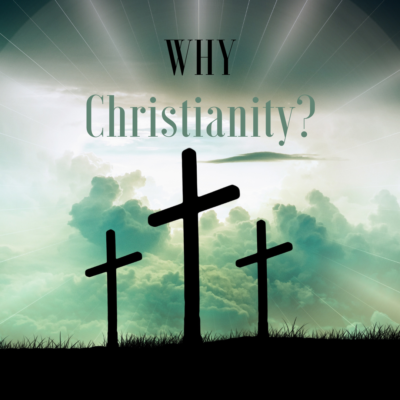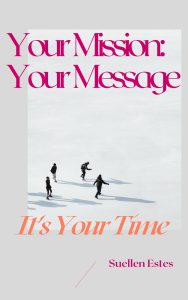![Read The Bible Through, Feb 16]()
by Suellen | Project 2013: Read The Bible
 Leviticus 19, 20
Leviticus 19, 20
Our culture, for all of its faults, is blessed to have a history of Judeo-Christian values. There are common sense parameters we live by because of this rich heritage. They just seem “normal.”
However, when we look at the Jew as they were starting out as a nation, such a heritage was not there. They had no Bible, no Jesus, nor any understanding of God’s plan and purpose. To keep them on track, God had to be very strict. Just as stern punishment might be required to keep a small child out of the street, these people needed harshness in order to follow God’s requirements for life.
He sternly warned them about opening themselves up to demonic forces. At that time, they couldn’t understand about demons, so He didn’t talk about them. However, He warned against any of the practices of witchcraft, sorcery, idolatry, or mediums. Those were practices which would allow the devil to trample freely through their lives. If they would follow His admonitions, they would stay safe even if they didn’t understand all that they were doing. (more…)

by Suellen | Project 2013: Read The Bible
 Well, in the words of Ricky Ricardo, “I have some ‘splainin to do.” Sorry for being absent during the last few days.
Well, in the words of Ricky Ricardo, “I have some ‘splainin to do.” Sorry for being absent during the last few days.
I did let you know that my precious mother-in-law spent a week in the hospital with pneumonia and then passed away. (She was a true saint and really ready to be with Jesus at 94). The day after the funeral, I came down with what the doctors called “the crud.” (Not the flu, just the crud). Please forgive the delay.
But I’m back and I’ll try to make a hurried catch up on comments.
Exodus 25-31 and 36-40
Sometimes when reading the Old Testament, the details seem laborious. We may think that all the intricate design and specificity is unnecessary.
Well, when we begin to dig beneath the surface, we realize that the detail only makes it more powerful. God was the author of the Bible, as He breathed His words through men. And only God could have orchestrated such poignant symbolism to give us the pictures of the truths He wanted to show us.
When reading about the details of the temple and all of its implements, we could spend days discovering the truths He was showing us. I want to show one big one.
If we look at the tabernacle, we can see ourselves. (more…)

by Suellen | Project 2013: Read The Bible
 Exodus 23-28
Exodus 23-28
We are still reading about the laws which were given to the people through Moses. Chapter 23 starts out with laws I call “attitudes of justice.”
The Hebrews are not supposed to make false reports against each other, or take bribes, or oppress strangers. Neither are they to be partial to someone just because they are poor.
All of these laws are familiar to us today, as we attempt to be honorable people.
In 23:14, we are introduced to three feasts which are to be instituted. We will hear about these several times in the Old Testament. I think of them as a way of introducing the Jews to the experiences Jesus , the Savior, would lead us into.
The first feast is the Passover, preceded by the Feast Of Unleavened Bread. This feast represents the born again experience, when we receive Jesus as Lord and Savior. He is the Passover Lamb sent by God for the final sacrifice. When they observe Passover, they are pointing to that fact.
The second feast is the Feast Of Pentecost. (They have other names for it: Feast of Harvest or Feast of First fruits). In the Christian life, this represents the Day of Pentecost, when Jesus waved the First Fruits before the Father.
These first fruits were the new believers who had received the Baptism in the Holy Spirit in the Book of Acts. The Holy Spirit entered the hearts of the people and they became empowered to be the witnesses of Jesus to the world. By the way, this happened on the Jewish Day of Pentecost.
The third feast is The Feast Of Ingathering (or the Feast of Booths, or Feast of Tabernacles). This feast represents the believer’s walk closely with the Lord – worshiping, praising, and living for Jesus in the new covenant.
The Lord then reminds the people that He will send an angel before them and they must obey this angel. He will lead them to the new land, the promised land.
Imagine yourself being a part of this group. Every day must have been full of surprises, as they were introduced to God’s concepts. He was obviously full of great power, but sometimes he must have seemed very strict. He had to be strict. He was leading these people into a new life – a life filled with tremendous blessing, but also tremendous responsibility.
Tomorrow there will be more on the pattern of the tabernacle. Lots of symbolism there also.
Matthew 21: 1-22
Wasn’t Jesus bold? When you think about the fact that so many Pharisees and Sadducees were following Him and harassing Him, His boldness was amazing. he never flinched; He just grew bolder.
As Jesus was to enter Jerusalem, He sent for what He needed – a donkey and a colt, so that He might ride on them.
Later as we read in the Old Testament, we will see how the Ark of the Covenant would be carried amidst praise. During that time in history, the Ark represented the glory of God. As He made His entrance into Jerusalem in this way, Jesus was showing the people that He was the glory of God. He was being praised and honored by those who cried out Hosanna.
He then proceeds to drive the money changers from the temple. They were defiling the temple by using every opportunity to make a profit. Their hearts weren’t toward the purpose of the sacrifices; they just wanted the money for the doves.
Verse 15 is interesting. When the chief priests saw what “wonderful things” He had done, and the children who were praising Him, they “became indignant.” Can you say, “jealous?”
I am skipping the Fig Tree episode here, because I like the Mark account so much.
Abundant Blessings.
Suellen Estes
![Read The Bible Through, Feb 16]()
by Suellen | Project 2013: Read The Bible
Note: I am writing this from a hospital room where my 94 year old mother-in-law is battling pneumonia. Prayers would be greatly appreciated.
 Exodus 16-22
Exodus 16-22
God seems tough, doesn’t He? He has to be.
Just think about this most unlikely scenario. This enormous crowd of people (some scholars say about 6 million), who have been slaves under the fist of Pharoah all of their lives – and the lives of their fathers – and the lives of their fathers’ fathers – back for 400 years, are leaving to form their own nation.
This unlikely group of people, often hard-headed and self-centered, are actually God’s chosen people. They are chosen because of God’s covenant with Abraham, Isaac, and Jacob. He promised to take them to their own land. And what he wants from them is to establish a relationship with Him, come to understand His ways, be faithful to Him, and some day be the nation which brings forth His salvation to the rest of the world.
They don’t look like they are on track for such a great mission, but God’s hand is upon them anyway. (more…)

by Suellen | Project 2013: Read The Bible
 Exodus 1-3
Exodus 1-3
Anyone who thinks that God is not involved in earthly affairs, just hasn’t read the Bible.
Another hero enters the scene: Moses. From the time of his birth, it was obvious that God’s hand was upon him. To think that this Hebrew child was protected by Pharoah’s daughter herself and brought up in a palace! And that his own mother was brought in to be his nurse. Wow, God can really do it right, can’t He?
Once again we see that God’s plan takes time to develop. Moses has been protected and brought up with great care and discipline, but he has arrogance. So it’s 40 years on the backside of the desert for him.
Discipline and wisdom will be required for this man to lead millions of unruly Jews out of Egypt, across the desert to the promised land. He has to develop all of that. After 40 years, when he is 80, and just happy being a farmer, the Lord shows up calling him into service. He’s ready now. He doesn’t think he can do it. He will have to rely upon God. (more…)









